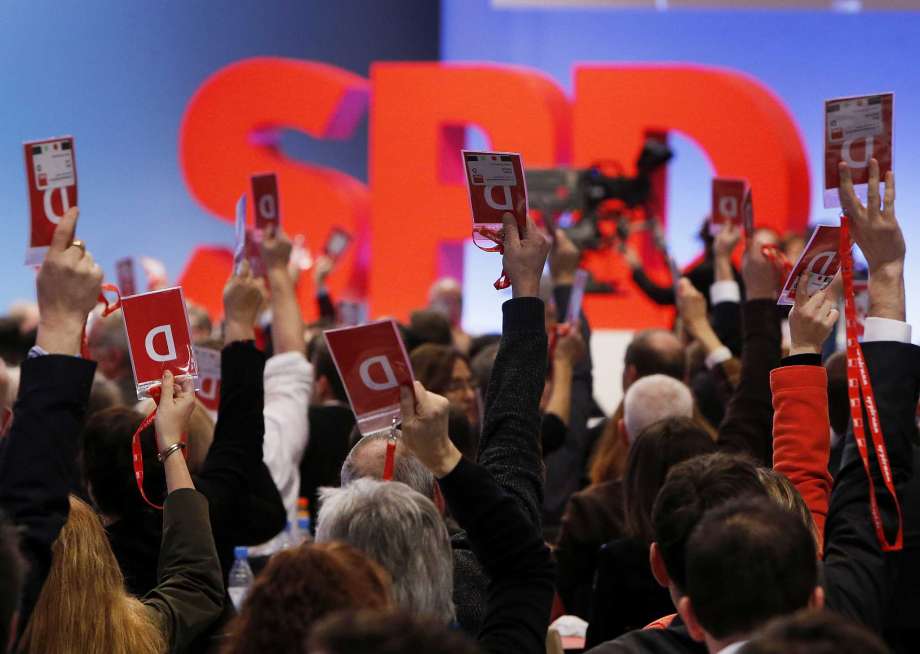Tuesday, February 20

GERMAN POLITICS
Odds of CDU minority government shorten as SPD begins coalition vote

The deeply divided membership of the Social Democrats start casting postal votes today on whether to approve a grand coalition with Chancellor Angela Merkel’s CDU.
Last week, leader Martin Schulz resigned over SPD infighting, leaving interim leader Olaf Scholz and eventual leader Andrea Nahles to persuade their party to agree to the deal. However, given the turmoil in the SPD, leading conservatives are starting to urge chancellor Angela Merkel to opt for a minority government rather than her preference of calling new elections.
Under a Merkel minority government, every piece of legislation the conservatives want would need opposition support to pass. She could do a deal with the right-leaning parties over immigration and tax reform but then negotiate with the left-leaning parties over reducing CO2 emissions by 2025 or 2030. Despite this flexibility, this form of governing is unstable and unprecedented in post-war Germany.
Expect the SPD vote to go down to the wire. In the event of a no vote, expect intense lobbying from CDU senior figures for Merkel to form a minority government.
BRAZIL’S SOCIAL REFORMS
Looming threat of violence as unpopular pension vote likely to pass today

A controversial vote on an overhaul of Brazil’s pension system is expected today in the lower house of Brazil’s congress.
Spearheaded by President Michel Temer, the bill attempts to bring Brazil’s budget deficit under control by making significant cuts to Brazil’s costly social security system, which economists widely believed has caused the increasing deficit. Between 2014 and 2017 Brazil’s deficit nearly doubled. The social security deficit alone increased by 18.7% to a record $82.49 billion.
Due to the extent to which many Brazilians rely on benefits from the existing social security system, the bill is enormously unpopular. While there has been uncertainty over the bill’s passage, amendments watering down the legislation added two weeks ago may have secured the needed votes.
Since the earliest days of negotiations, protesters have actively denounced the bill. Temer has ordered federal troops to prevent protesters from disrupting the negotiation process and the eventual vote itself.
The bill will probably pass today. However, watch out for the potential of violent clashes between protesters and the police, which could still delay the vote.
ISRAEL-PALESTINE CONFLICT
Abbas to address UN Security Council as US shuns compromise

Today, Palestinian President Mahmoud Abbas will address the United Nations Security Council’s monthly meeting on the Middle East.
His appearance comes amid the continued fallout from US President Donald Trump’s recognition of Jerusalem as the capital of Israel, a decision breaking with decades of US policy. At today’s meeting, Abbas plans on asking the council to grant full UN membership to the Palestinians and reiterating his call for an internationally backed panel to broker future talks between the Palestinians and Israelis.
Since Trump’s December announcement, relations between Abbas’s Palestinian Authority (PA) and the White House have soured. In protest, Mr Abbas cancelled a meeting with Vice President Mike Pence scheduled shortly after the announcement. Additionally, in January, the US slashed over $60 million in aid to the PA.
With Trump continuing to threaten cuts to Palestinian aid and the US likely to veto any proposal to upgrade PA membership from its current “non-member state” status, expect relations between the Trump administration and Abbas to worsen as US policy pivots away from cooperation and compromise with the Palestinians.


